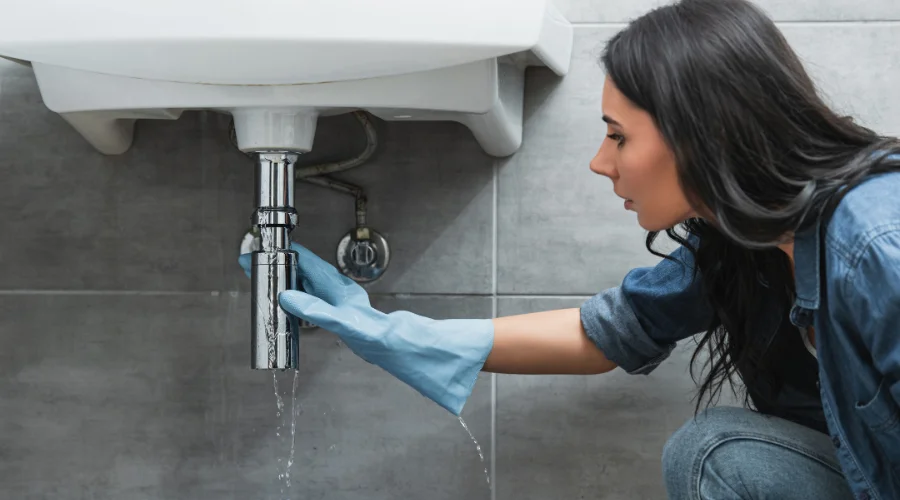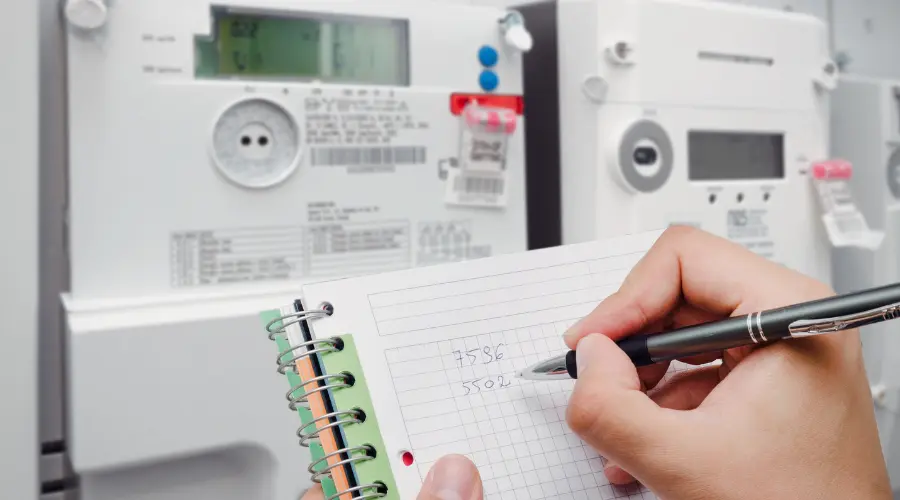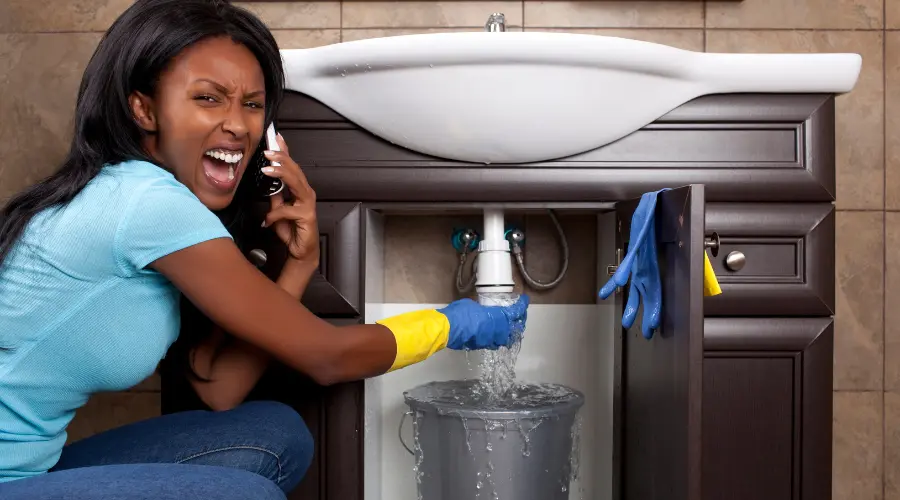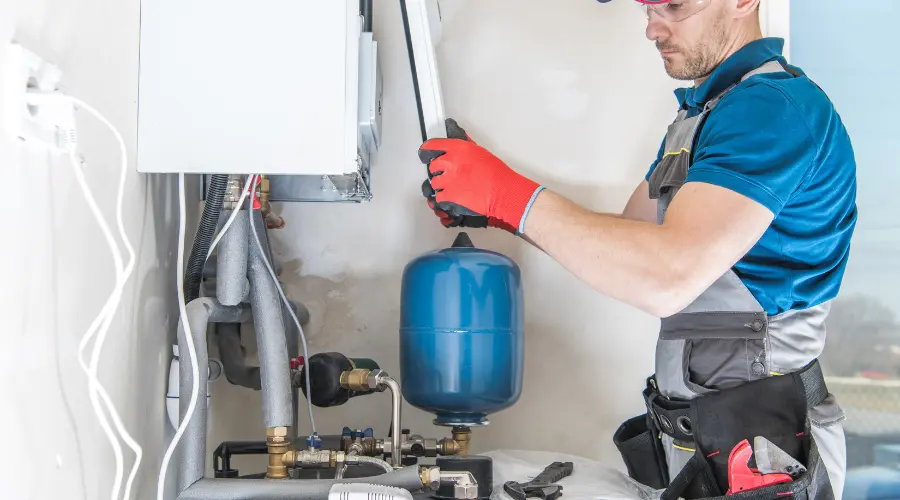Every person who owns a home worries about plumbing problems happening suddenly. These issues, like pipes bursting or big leaks, can make a calm home very messy. Feeling stressed about these things is expected because they can cause much damage quickly. It’s not just about inconvenient things; it’s about water causing severe and fast damage to your home. In this blog post, we’ll discuss why it’s important to fix plumbing problems immediately. We’ll also share tips to help homeowners prepare for unexpected plumbing issues and keep their homes safe.
CBJ West New York Plumbers Company is the go-to choice for smart homeowners in West New York, New Jersey, and the surrounding regions for all plumbing requirements. Our team of highly skilled and trained professional plumbers is prepared to address any plumbing issue, whether it’s a simple leaky faucet or a complex plumbing overhaul.
Why Do Plumbing Problems at Home Need Immediate Repair?
Plumbing problems often appear innocuous initially, tempting homeowners to postpone repairs. However, the repercussions of such delays can be profound. Neglected plumbing issues have the potential to transform into primary concerns, with water damage swiftly escalating to compromise the structural integrity of your home. The insidious growth of mold becomes a lurking threat, posing health risks and necessitating costly remediation. By addressing plumbing issues promptly, you not only save yourself from financial burdens down the road but also safeguard the safety and integrity of your home. Timely attention to plumbing concerns is an investment in the longevity and resilience of your living space.
9 Plumbing Maintenance Tips to Prevent Disasters
- Treat Your Kitchen Sink with Respect
Treating your kitchen sink carefully is crucial, recognizing it as a drainage point for water and food scraps, not a substitute for a toilet. Dispose of kitchen waste properly by avoiding the temptation to discard grease, coffee grounds, or leftover food down the drain. These practices can lead to clogs, unpleasant odors, and potential damage to your pipes. Opt for proper disposal methods, such as using a compost bin for food scraps, and invest in drain screens to catch debris before it causes issues.
- Inspect Your Pipes Regularly
Regular plumbing system inspections can be the first defense against potential issues. Take the time to visually inspect exposed pipes for any indications of damage, corrosion, or leakage. Early detection allows timely intervention, preventing minor concerns from escalating into full-blown emergencies. A small leak, if unnoticed, can lead to water damage, mold growth, and compromised structural integrity over time.
- Schedule Periodic Professional Plumbing Inspections
While DIY inspections are valuable, there’s no substitute for a professional plumbing inspection. Periodic visits from a skilled plumber can unveil hidden problems that may escape the untrained eye. Additionally, professional plumbers can provide preventive maintenance, ensuring that the condition of your plumbing system stays at its best and reducing the risk of unexpected emergencies.
- Locate and test the primary shut-off valve.
In a plumbing emergency, knowing the location of the main shut-off valve is paramount. This valve manages the water supply to your entire house.
Please familiarize yourself with its location and functionality and regularly test it to ensure it operates smoothly. In emergencies like burst pipes, turning off the water supply with assurance and speed can mitigate potential damage and buy time until professional help arrives.
- Keep the water pressure properly and install an automatic shut-off valve.
Monitoring and maintaining correct water pressure is a proactive measure to prevent plumbing disasters. High water pressure can strain pipes, leading to leaks and ruptures. Installing an automatic shut-off valve adds an extra layer of protection by cutting off water flow when pressure exceeds safe levels, preventing potential damage and offering peace of mind.
- Clean Your Drains Once a Month
Regular drain cleaning is a simple yet effective practice to prevent clogs and keep water flowing smoothly. Apply a vinegar and baking soda combination. Or a commercially available drain cleaner to break down any accumulated debris. This routine maintenance can save you from the annoyance and perhaps harm brought about by clogging.
- Check and Descale Your Water Heater
Your plumbing system’s water heater is essential, and if you ignore maintaining it, its lifetime and efficiency will suffer. Periodically check and descale your water heater to remove sediment buildup. Flushing the tank and ensuring proper operation prolongs the appliance’s life and maintains the quality of hot water throughout your home.
- Don’t Flush Anything Besides Toilet Paper
Using toilets as disposal units for various items is a common mistake. However, flushing anything besides toilet paper can lead to blockages and plumbing issues. Paper towels, wipes, and feminine hygiene products hygiene items are not readily decomposable and can accumulate in pipes, causing clogs and potential backups. Encourage proper waste disposal habits among household members to prevent avoidable plumbing problems.
- Understand the Risks and Limitations of Do-It-Yourself Fixes
While DIY repairs can be tempting, understanding their limitations and associated risks is crucial. Some tasks, such as fixing minor leaks or replacing a faucet, may be within reach for a homeowner with basic skills. However, more complex issues, like extensive pipe damage or sewer line problems, require professional expertise. Knowing when to call a plumber can guarantee the work is done accurately and safely and stop additional harm. By incorporating these detailed tips into your plumbing maintenance routine, you empower yourself as a homeowner to take proactive measures to prevent plumbing disasters and guarantee the plumbing system in your house lasts a long time.
Emergency Toolkit Checklist and Steps to Take While Waiting for Professional Assistance
- In case of a plumbing emergency, having a toolkit ready is essential.
- Include items like a pipe wrench, plumber’s tape, and a bucket.
- While waiting for professional assistance, turn off the main water supply,
- use towels to contain leaks, and avoid using plumbing fixtures to prevent further damage.
Preparing for plumbing disasters is critical to reducing harm and guaranteeing your house’s security. Homeowners may take proactive actions to stop and address plumbing emergencies by following these maintenance tips and creating an emergency toolkit. A stitch in time saves nine, as they say, and in plumbing, timely action can save you from a flood of troubles. Stay vigilant, stay prepared, and keep your plumbing in check for a worry-free home.





